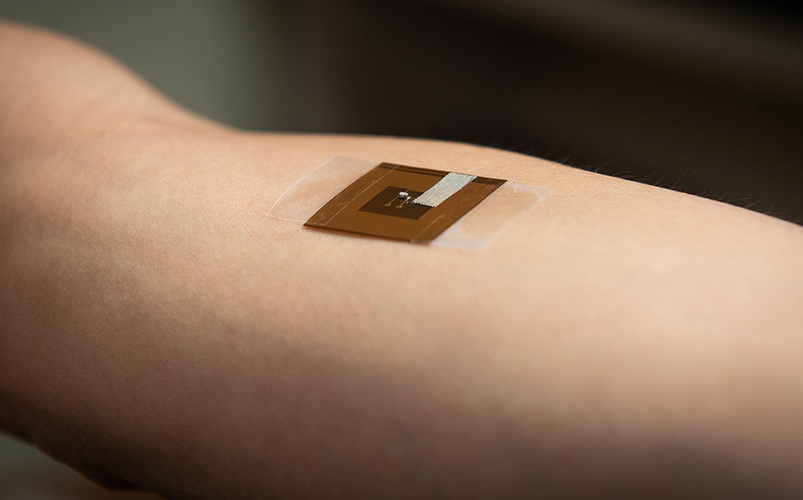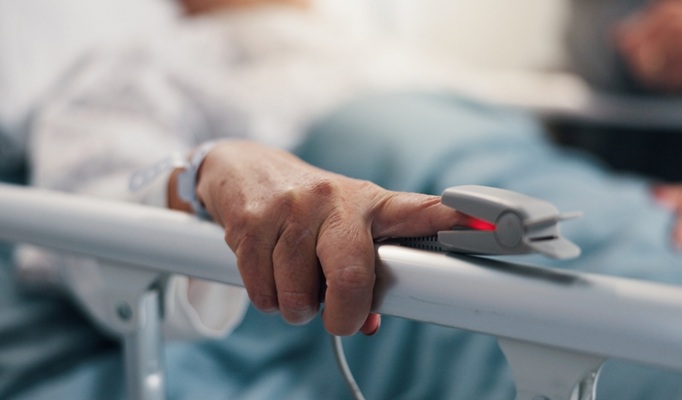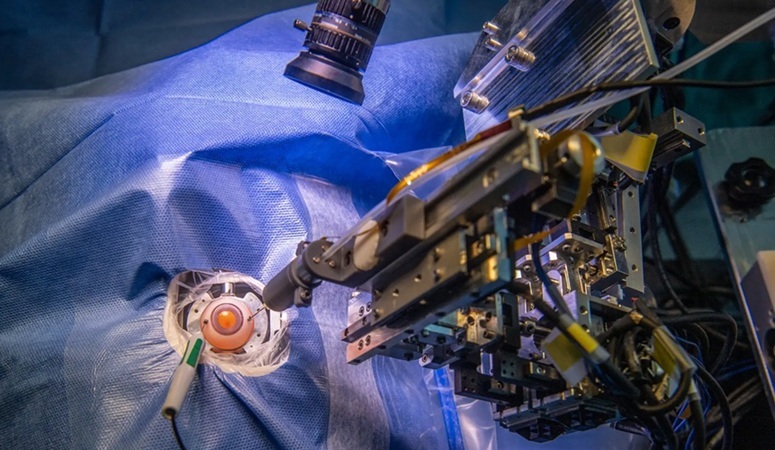Breastfeeding Reduces Maternal CVD Health Risk
|
By HospiMedica International staff writers Posted on 01 Feb 2022 |

Image: Breastfeeding reduces future CVD risk for mothers (Photo courtesy of Getty Images)
Women who breastfed their children are less likely to develop cardiovascular disease (CVD) or stroke later on in life, according to a new study.
Researchers at the Medical University of Innsbruck (I-MED; Austria), the University of Bristol (United Kingdom), and other institution conducted a meta-analysis of eight relevant prospective studies conducted between 1986 and 2009 (in Australia, China, Norway, Japan, and the United States), involving 1,192,700 parous women (mean age 51.3 years), on average 24.6 years after their first birth. Of these, 982,566 (82%) reported having ever breastfed, with the average total time of breastfeeding 15.6 months.
The results revealed that over an average follow-up period of 10 years, women who breastfed at some time in their life were 14% less likely to develop coronary heart disease (CHD); 12% less likely to suffer strokes; and 17% less likely to die from CVD. In all, women who breastfed for 12 months or longer had an overall 11% decreased risk of developing CVD, with no notable differences in CVD risk among women of different ages or based on the number of pregnancies. The study was published on January 11, 2022, in Journal of the American Heart Association (JAHA).
“It's important for women to be aware of the benefits of breastfeeding for their babies' health and also their own personal health,” said senior author professor of clinical epidemiology Peter Willeit, MD, PhD, of I-MED. “Moreover, these findings from high-quality studies conducted around the world highlight the need to encourage and support breastfeeding, such as breastfeeding-friendly work environments, and breastfeeding education and programs for families before and after giving birth.”
The World Health Organization recommends breastfeeding exclusively for the first six months of life. Even after the introduction of foods at six months, continued breastfeeding is recommended until at least one to two years of age. But only 38% of infants are breastfed on a global level, and only about 13% in the United States. Short term benefits for the mother include less blood loss, better uterus shrinkage, weight loss, and reduced postpartum depression. Long term benefits include decreased risk for breast cancer, CVD, and rheumatoid arthritis.
Related Links:
Medical University of Innsbruck
University of Bristol
Researchers at the Medical University of Innsbruck (I-MED; Austria), the University of Bristol (United Kingdom), and other institution conducted a meta-analysis of eight relevant prospective studies conducted between 1986 and 2009 (in Australia, China, Norway, Japan, and the United States), involving 1,192,700 parous women (mean age 51.3 years), on average 24.6 years after their first birth. Of these, 982,566 (82%) reported having ever breastfed, with the average total time of breastfeeding 15.6 months.
The results revealed that over an average follow-up period of 10 years, women who breastfed at some time in their life were 14% less likely to develop coronary heart disease (CHD); 12% less likely to suffer strokes; and 17% less likely to die from CVD. In all, women who breastfed for 12 months or longer had an overall 11% decreased risk of developing CVD, with no notable differences in CVD risk among women of different ages or based on the number of pregnancies. The study was published on January 11, 2022, in Journal of the American Heart Association (JAHA).
“It's important for women to be aware of the benefits of breastfeeding for their babies' health and also their own personal health,” said senior author professor of clinical epidemiology Peter Willeit, MD, PhD, of I-MED. “Moreover, these findings from high-quality studies conducted around the world highlight the need to encourage and support breastfeeding, such as breastfeeding-friendly work environments, and breastfeeding education and programs for families before and after giving birth.”
The World Health Organization recommends breastfeeding exclusively for the first six months of life. Even after the introduction of foods at six months, continued breastfeeding is recommended until at least one to two years of age. But only 38% of infants are breastfed on a global level, and only about 13% in the United States. Short term benefits for the mother include less blood loss, better uterus shrinkage, weight loss, and reduced postpartum depression. Long term benefits include decreased risk for breast cancer, CVD, and rheumatoid arthritis.
Related Links:
Medical University of Innsbruck
University of Bristol
Latest Patient Care News
- Revolutionary Automatic IV-Line Flushing Device to Enhance Infusion Care
- VR Training Tool Combats Contamination of Portable Medical Equipment
- Portable Biosensor Platform to Reduce Hospital-Acquired Infections
- First-Of-Its-Kind Portable Germicidal Light Technology Disinfects High-Touch Clinical Surfaces in Seconds
- Surgical Capacity Optimization Solution Helps Hospitals Boost OR Utilization

- Game-Changing Innovation in Surgical Instrument Sterilization Significantly Improves OR Throughput
- Next Gen ICU Bed to Help Address Complex Critical Care Needs
- Groundbreaking AI-Powered UV-C Disinfection Technology Redefines Infection Control Landscape
- Clean Hospitals Can Reduce Antibiotic Resistance, Save Lives
- Smart Hospital Beds Improve Accuracy of Medical Diagnosis
- New Fast Endoscope Drying System Improves Productivity and Traceability
- World’s First Automated Endoscope Cleaner Fights Antimicrobial Resistance
- Portable High-Capacity Digital Stretcher Scales Provide Precision Weighing for Patients in ER
- Portable Clinical Scale with Remote Indicator Allows for Flexible Patient Weighing Use
- Innovative and Highly Customizable Medical Carts Offer Unlimited Configuration Possibilities
- Biomolecular Wound Healing Film Adheres to Sensitive Tissue and Releases Active Ingredients
Channels
Critical Care
view channel
Wearable Patch for Early Skin Cancer Detection to Reduce Unnecessary Biopsies
Skin cancer remains one of the most dangerous and common cancers worldwide, with early detection crucial for improving survival rates. Traditional diagnostic methods—visual inspections, imaging, and biopsies—can... Read more
Pulse Oximeter Index Offers Non-Invasive Guides for Fluid Therapy
In patients with acute circulatory failure, deciding whether to administer intravenous fluids is often a life-or-death decision. Too little fluid can leave organs underperfused, while too much can cause... Read moreSurgical Techniques
view channel
Robotic Assistant Delivers Ultra-Precision Injections with Rapid Setup Times
Age-related macular degeneration (AMD) is a leading cause of blindness worldwide, affecting nearly 200 million people, a figure expected to rise to 280 million by 2040. Current treatment involves doctors... Read more
Minimally Invasive Endoscopic Surgery Improves Severe Stroke Outcomes
Intracerebral hemorrhage, a type of stroke caused by bleeding deep within the brain, remains one of the most challenging neurological emergencies to treat. Accounting for about 15% of all strokes, it carries... Read moreHealth IT
view channel
Printable Molecule-Selective Nanoparticles Enable Mass Production of Wearable Biosensors
The future of medicine is likely to focus on the personalization of healthcare—understanding exactly what an individual requires and delivering the appropriate combination of nutrients, metabolites, and... Read moreBusiness
view channel
Philips and Masimo Partner to Advance Patient Monitoring Measurement Technologies
Royal Philips (Amsterdam, Netherlands) and Masimo (Irvine, California, USA) have renewed their multi-year strategic collaboration, combining Philips’ expertise in patient monitoring with Masimo’s noninvasive... Read more
B. Braun Acquires Digital Microsurgery Company True Digital Surgery
The high-end microsurgery market in neurosurgery, spine, and ENT is undergoing a significant transformation. Traditional analog microscopes are giving way to digital exoscopes, which provide improved visualization,... Read more
CMEF 2025 to Promote Holistic and High-Quality Development of Medical and Health Industry
The 92nd China International Medical Equipment Fair (CMEF 2025) Autumn Exhibition is scheduled to be held from September 26 to 29 at the China Import and Export Fair Complex (Canton Fair Complex) in Guangzhou.... Read more
















